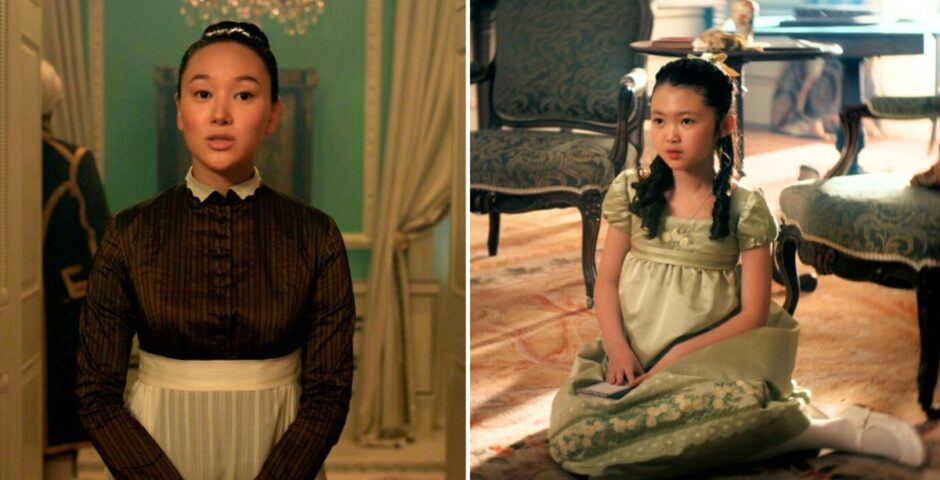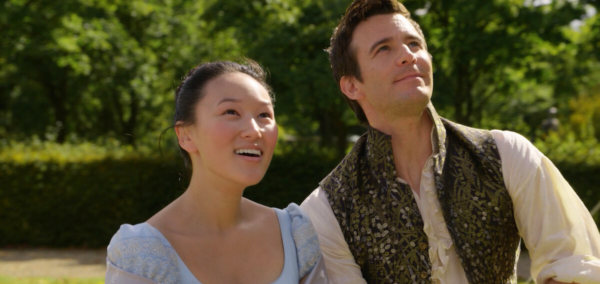
‘We stand together and fight’: Liverpool students react to UK Supreme Court trans ruling
‘Relish in the queer joy all around us, and do not despair’
Students at the University of Liverpool and Liverpool John Moores university have come together in solidarity with the transgender community both on and off campus following the announcement of the UK Supreme Court’s ruling within the Equality Act of 2010.
On April 16th, a panel of judges from the Supreme Court ruled to define the legal terms of “woman” and “sex” as referring exclusively to biological sex.
They came to the decision that biology will determine the definition of sex, and the “concept of sex” itself is “binary”. Therefore, the 2010 Act no longer provides legal protection for transgender women with a Gender Recognition Certificate.
Students residing across the city have deemed “this news deeply upsetting” and have called for all communities to “stand together and fight to protect each other”.
At the University of Liverpool, societies which provide safe spaces for LGBTQ+ students have shared their support for the wider transgender community online, reinforcing the message that “trans women will always be women”.

Students have expressed a demand for “community, voices and action”, claiming they are “needed now more than ever” in order to protect transgender and female-identifying students from danger and discrimination.
The Liverpool Tab reached out to the student community as it reacted to the news of the Supreme Court’s ruling. Many students voiced how they believe there was a “complete lack of judgement” within the decision as there was “no representation from LGBTQ groups on the ruling committee”.
The University of Liverpool’s LGBTQ+ society expressed their devastation following the ruling, telling The Liverpool Tab that its community are “worried about the precedent this may set in future legal cases”.
Most Read
A society representative said: “So many of our members, including myself, have come to Liverpool and found themselves, and begun the process of transition. They will continue to find support within the society and wider Liverpool queer community.
“It is so important now that we stand together and fight to protect each other – relish in the queer joy all around us, and do not despair. Yesterday we grieved and today we stand up and fight – as our community always has”.
The Supreme Court’s decision to define sex biologically will not only affect transgender women’s access to representation and opportunities in the workplace. It will limit access to the armed services, sports, women-only charities and crisis centres, changing rooms, toilets and hospital wards.
Transgender women will still be allowed access to some laws within the Equality Act, such as equal pay rights as women, but all of the parameters are not yet clear.
The Butch Society at the University of Liverpool also expressed similar thoughts on the news. The group’s founding committee have worked tirelessly on campus to provide a safe space for queer students, transgender women, and allies.
“Yesterday’s ruling leaves one of the most vulnerable communities in the UK at more risk.
“The existence of trans people in society has no record of harm, regardless of places like bathrooms, sports, and lesbian spaces. The definition of what a woman is has been trivialised by hate groups and the media and we will not stand by this.
“Here at Butch Society, trans lives will always be sacred, trans women will always be women, and we will keep making noise to defend a beautiful and important community”.

Other students from the University of Liverpool and Liverpool John Moores University shared their opinions on the ruling.
MJS, a student from the University of Liverpool, shared a personal story with The Liverpool Tab which deemed the ruling “devastating”.
She argued against threatening yet common anti-transgender comments that claim transgender women are “more prone to violence” than cisgender women, and highlighted that the ruling may be “the start of something worse” for the community”.
“I’m a transgender woman. Waking up to find out that we’ve been ruled against yet again is devastating” she said.
“These groups; under the feigned label of protecting women, are putting the boot down and grinding the heel into an already oppressed minority that make up less than one per cent of the population.
“Transgender women aren’t more prone to violence, or ‘male-brained’. We’re just people, and we’re not out to hurt anyone. This isn’t just indicative of a growing clamour of anti-trans sentiment from powerful groups, but of the start of something worse.
“This is the thin side of a wedge being tugged out to swing open the door for other rights to be ripped away, for myself and for other groups. These rulings have killed people, people I know, and they will continue to do so. I’m scared of the worst yet to come”.
Other students anonymously submitted similar sentiments, insisting that “it’s very scary to go back on 20 years of progress” made within the transgender community, and underlining that “half the problem is ignorance and lack of access to resources that actually explain gender theory, and the separation of societal gender and biology”.
Holly Thompson, vice-president of the Liverpool Guild of Students, has been a strong force in representing the LGBTQ+ community at the University of Liverpool during her tenure, particularly through introducing the Gender Expression Fund for transgender and gender diverse students.
In conversation with The Liverpool Tab, she shared her “love and solidarity to anyone affected by this news” and insisted that she will utilise her role as vice-president in the student union to continue working to support transgender students.
“I find this news deeply upsetting and backwards thinking” she said.
“Trans people have and always will exist. Trans rights are human rights and trans women are women, and this will always be the case.
“I’m sending love and solidarity to anyone affected by this news and will continue fighting for trans rights and doing everything I can to make the LGBTQ+ community feel safe in Liverpool”.

The Gender Liberation society at the University of Liverpool also praised Holly’s “incredible work” on establishing the Gender Expression Fund. In conversation with The Liverpool Tab, a society representative expressed that they “have always proudly celebrated and stood in solidarity with our trans siblings”.
They continued to say: “The ruling by the Supreme Court to define ‘woman’ by biological sex is a scary regression of trans rights and a danger to all women’s rights in this country.
“To see an attack of trans women, especially in law, is even more saddening when we have had such positive wins for trans students. It is now more important than ever to protect, and support, safe-spaces for trans and non-binary people around the UK
Additionally, transgender voices studying on campuses across the city have been outspoken about their fears following the ruling, with one student simply stating that hearing Wednesday’s news has been “awful” and has made them “more uncertain” about their future than ever before.
One transgender student told The Liverpool Tab that they are “scared” not only for themselves, but “for all trans people” within the community. They said the ruling “isn’t just a step back in human rights” but “a complete violation” of identities.
“They’re coming for every member of the queer community next and it’s terrifying to see. Trans healthcare is already incredibly underfunded and controlled, with 10 year long NHS waitlists, and young trans people being forcibly stopped from going on hormone blockers. Suicide rates amongst trans people will go up as a result of this, because the government is showing that they don’t care about us. This isn’t a choice, because I sure as hell wouldn’t have chosen it if it were.
“Every bit of my savings goes towards life saving care that I cannot get on the NHS. It’s not just those in power and with money seeing us as lesser; it’s a blatant attempt to try and eradicate us from society by stopping us from accessing gendered spaces”.

This same sentiment dominated other students’ responses to the ruling.
Leah, a second year student in Liverpool, shared their personal outlook on the effects the transgender communities may face following the decision, labelling it “another knockdown” for those who are already “vulnerable” and at risk of an increased “level of judgement” from others.
“My sister is trans, and it’s so devastating to think about the impact it will have on her adult life. Professionally, she may never be seen as a woman, and it’s another knockdown for her as an already vulnerable person. I’m just devastated and a bit lost on what we should be doing next.
“It seems like an obvious way to control women even more. Why was there no ruling on men? It makes women’s bodies more controlled and overseen by the state, and it’s just disgusting.
“I think anyone who knows a trans woman knows the devastation this will cause, and I think it’s really disgusting to see TERFS celebrating when all this will do is increase the level of judgment for all women”.
Cisgender students across the city also declared their allyship with the transgender community, but remained fearful of the harms caused by the reinforcement of the gender binary within the Equality Act. One anonymous voice told The Liverpool Tab that they believe the decision “is going to do more harm than good” to both transgender and cisgender women.
They said: “People think this is ‘feminism’, but it’s just patriarchal, and reinforcing the idea that women have to look a certain way. This is going to affect the masc and butch community, the intersex community, and women who are not ‘feminine’ presenting and have more masculine attributes.
“The ruling didn’t even bring up transgender men: Misogyny is the root of it all. If a man wanted to assault or hurt a woman, he would just do it anyway. This is so frustrating”.
Another student also said: “Make no mistake, as a cisgender woman who is a survivor of sexual assault, I do not feel protected by this ruling.
“Transgender women have never been my fear. Not allowing transgender women to use bathrooms, single-sex hospital wards, or female only crisis centres is not going to solve the rape, sexual assault and misogyny crisis in the UK. I do not feel safer knowing that the law now legally discriminates against the transgender people I know and love, and also those I do not know.
“This helps no one, and affects all women and LGBTQ+ people. They came for transgender people, and now they will come for us too”.
The UK Supreme Court has been contacted for comment.





















